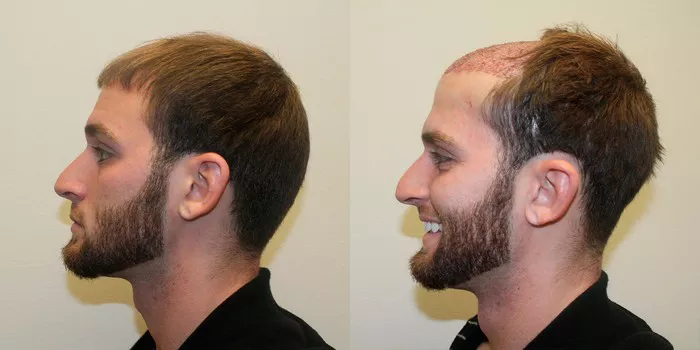Hair transplantation has become an increasingly popular solution for individuals grappling with hair loss. While the procedure offers a lasting remedy for many, there is a prevalent misconception that transplanted hair may eventually fall out after several years. In this article, we aim to dispel this myth and provide insights into the longevity of transplanted hair.
The Science Behind Hair Transplantation
Understanding the longevity of transplanted hair requires delving into the science behind the procedure. Hair transplantation involves harvesting hair follicles from a donor area, typically the back or sides of the scalp, and transplanting them to the recipient area, where hair loss has occurred. The donor hair is genetically resistant to the hormone dihydrotestosterone (DHT), which is the primary culprit in hair loss. As a result, transplanted hair tends to be more resilient against the effects of DHT.
See Also: The Duration of Pain After a Hair Transplant: A Quick Guide
The Initial Shedding Phase
Shortly after a hair transplant, patients commonly experience a phenomenon known as “shock loss” or the “shedding phase.” This is a natural part of the hair transplantation process where the transplanted hairs fall out within the first few weeks. However, this shedding is temporary, and it should not be confused with permanent hair loss.
During the shedding phase, the transplanted hair follicles enter a dormant state before regenerating new, stronger hair. This is a crucial aspect of the healing and growth process, and patients should not be alarmed by the initial loss of transplanted hairs.
Permanent Nature of Transplanted Hair
Contrary to the misconception that transplanted hair may fall out after several years, the reality is that once the transplanted hair has fully grown, it tends to be a permanent addition. This is because the donor hair is resistant to DHT, which means it is less susceptible to the factors that cause typical hair loss.
The permanence of transplanted hair is a key reason why hair transplantation is considered an effective and long-lasting solution for hair loss. Patients can enjoy natural-looking and permanent results, provided that the procedure is performed by a skilled and experienced surgeon.
Maintenance and Aftercare
While transplanted hair is resistant to DHT and generally permanent, it is essential for patients to follow proper maintenance and aftercare guidelines. Good hair care practices, including gentle washing, conditioning, and protecting the scalp from excessive sun exposure, contribute to the longevity of transplanted hair.
Additionally, some patients may choose to use FDA-approved medications such as minoxidil or finasteride to further support hair health. These medications can be effective in preventing further hair loss and maintaining the overall quality of existing hair, including transplanted follicles.
Individual Factors and Expectations
It is crucial to recognize that individual factors can influence the long-term success of a hair transplant. Factors such as the patient’s overall health, genetic predisposition to hair loss, and adherence to post-operative care instructions can impact the outcome.
Moreover, setting realistic expectations is essential. While a successful hair transplant can provide a natural and permanent solution, it does not halt the natural aging process. As individuals age, hair density may decrease naturally, and some thinning may occur. However, this should not be confused with the loss of transplanted hair.
Conclusion
In conclusion, the fear that transplanted hair may fall out after several years is largely a myth. Hair transplantation, when performed by a qualified professional, offers a reliable and long-lasting solution for individuals experiencing hair loss. Understanding the science behind the procedure, recognizing the temporary shedding phase, and implementing proper aftercare are essential aspects of ensuring the longevity of transplanted hair. By dispelling these myths and promoting accurate information, individuals can make informed decisions about pursuing hair transplantation as a viable solution to hair loss.


